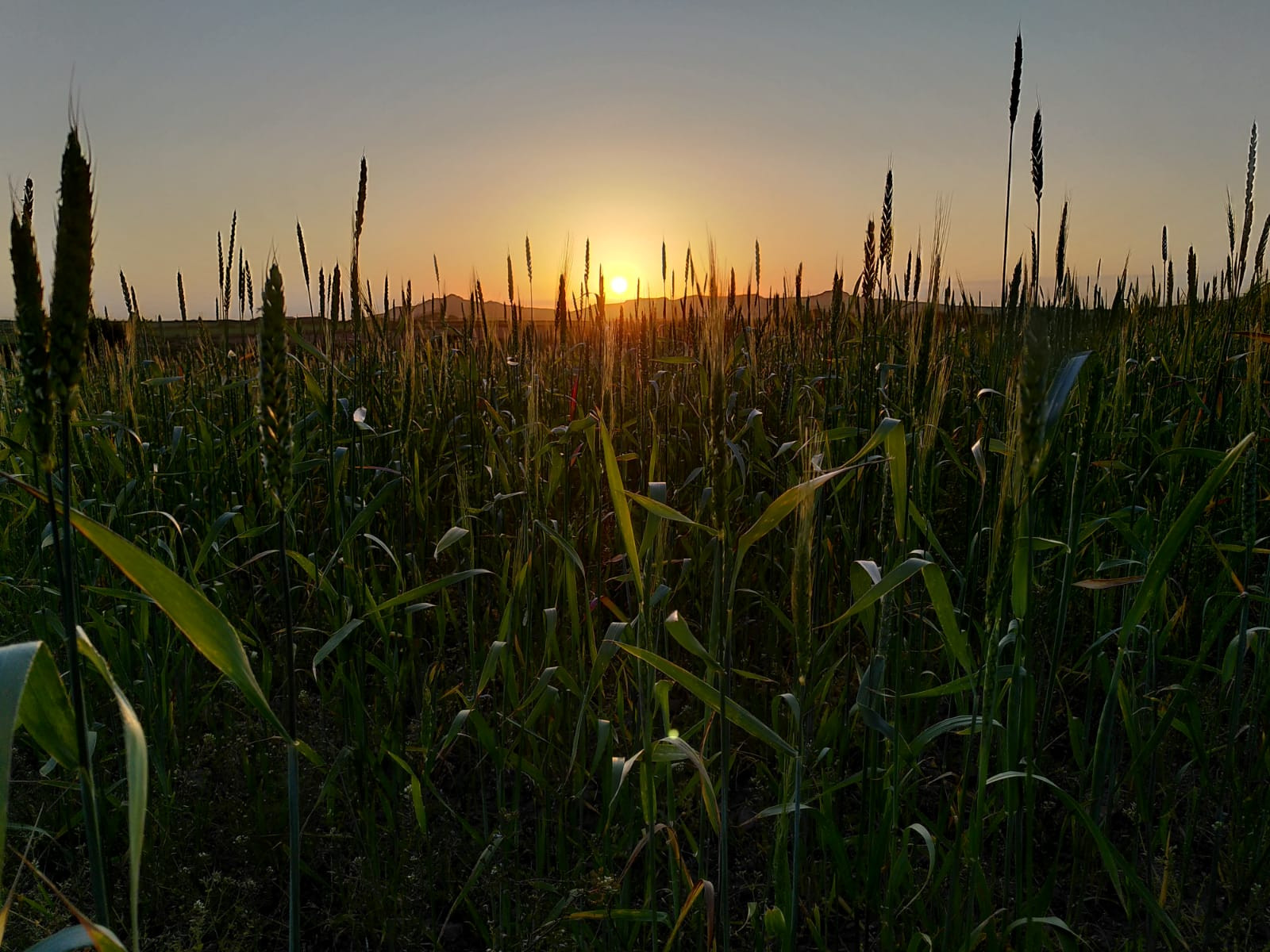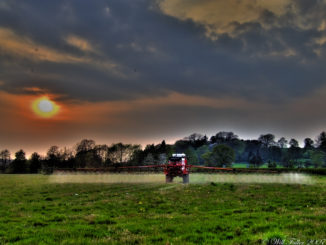
After three action-packed days, the Oxford Real Farming Conference 2022 ended on a positive note, forging hope from solidarity. With powerful takeaways on diversity and knowledge sharing, there was much to be optimistic about thanks to contributions from a multifarious community of kindred spirits and a vibrant youth element. Ursula Billington reports.
The Oxford Real Farming Conference (ORFC), the UK’s annual gathering of the agroecology community, went global in 2022 for the second year running. It once again proved an energising moment of excitement, solidarity and hope for the real farming movement.
An intensive three days of panel discussion took in food growing, land justice, biodiversity, climate change, trade, practical farmer advice and much more between the furrows and on the margins.
The packed programme demonstrated the ORFC wholly walks its talk: with topics ranging from local to global, often grappling with difficult subjects – this year, a whole stream dedicated to land justice issues; a focus on community, inclusivity and embracing the new, with tons of youth involvement to bolster the movement into the future.
The wide-ranging programme mirrored the strength in diversity so vital in agroecology itself. In forging this multifarious community of kindred spirits, conference organisers Colin Tudge and Ruth West are working to ensure the movement for real food and farming transitions from surviving to thriving.
So what were the key themes and takeaways from the event?
It’s about nourishing local people, locally
Supply chain reform and retail are the next vital steps for the real farming movement. It was suggested that, whilst growers are of course hugely valuable and valued, a ‘generation of agroecological shopkeepers’ is what’s needed. Many traders want to build on the recent momentum of surging interest in local food, promoting further what local producers and retailers offer in order to keep building that consumer base. Likewise, there’s hope that better promotion of evidence of the benefits of local real food markets will drive policy support.
There were, of course, calls for investment, policy support and better infrastructure to grow local supply chains and markets. Lynne Davis of the Open Food Network said “I hope that in 2022 we recognise supply chains (or, more specifically, distributed coordinated supply networks) as a critical piece of the puzzle for agroecological transformation. So that we can build the infrastructure, gain the investment and develop the appropriate governance together as a movement.”
Diversity is essential
This theme was returned to repeatedly as a vital component in everything from supporting biodiversity to nurturing livestock, from food security to farm viability, from happy communities to healthy environments, and from the ways we engage with agroecology to the very stuff it applies to.
For example, diverse crops and plants in margins, grasslands and meadows help support the vast range of wild bees native to Europe, each with their own unique needs and specialities; provide a range of natural properties and remedies so livestock can self-medicate, reducing the need for antibiotics and anthelmintics; and increase the range of natural pest controls so pesticides aren’t necessary.
The same applies to those working on the land: all communities should be represented so their needs can be met. Likewise with the land itself. A diverse range of nature-centred approaches apply, depending on the needs of vastly differing landscapes and locations. As Jean-Matthieu Thévenot, of the European Via Campesina group, said “Agroecology is diverse so it can change and adapt depending on context. It centres on living beings with needs that change and evolve.”
The conference itself has adapted to incorporate a rising awareness of land justice issues. In sessions programmed by Shared Assets and Land In Our Names (LION) discussion revolved around the need for a more accessible, diverse and welcoming farming movement. Growing culturally-appropriate foods for local people is just one way of embracing this progression. Acknowledging, celebrating and learning from indigenous practices is essential to the process.
Knowledge-sharing is power
Agroecology thrives on peer-to-peer learning. Strong community learning networks inspire change and empower members; farmer-led research provides the evidence that really supports farmers on the ground. In other words, knowledge-sharing is power: so said countless farmers speaking at the ORFC, from the UK to Europe to Africa, including those representing the Nature-Friendly Farming Network, Innovative Farmers, Zambian Agroecology, La Via Campesina, Landworkers Alliance (LWA) and more.
There isn’t time to be competitive when faced with rapid biodiversity loss and climate change, argues Marissa Reyes-Diaz of the Boricua Agroecology Organisation; agroecology is key in encouraging cooperation, knowledge- and solution-sharing to overcome obstacles. Thévenot agrees: “Farmers that work together with a foundation of farmer-led research and initiatives, and strong links to civil society, become more resilient and healthy.” There’s also value in learning and collaboration across national boundaries, suggests Rachel Arnould of Data Food Consortium: “As a French person my big hope for 2022 is that local food systems keep strengthening their links across the Channel. We have so much to learn from each other.”
A blueprint for embedded ecological learning can be found in the UK at ORFC partner Schumacher College, where it is included in every course as an essential component for human growth and development. College Founder Satish Kumar suggests, “Every school should have a garden; every university be connected with a farm. Young people should respect and recognise the value of connection with soil and food growing.”
Looking to the past generates hope for the future
In Kumar and Vandana Shiva’s keynote on the ‘ecological act of defiance’ of choosing real food to shift power back to small farmers, local markets and indigenous practices, Shiva spoke passionately on the success of the Indian farmers’ protests in 2020-21: “The consciousness of the small farmer has been reborn in India.”
Rising awareness of the importance of small-scale farmers is good news, where globally smallholders produce 70% of the world’s food. The ORFC underlined the valuable contribution of smallholders to food security past and future. A panel of respected experts including the ETC Group’s Pat Mooney, LWA and GRAIN effectively dissected and dismissed the new agritech narrative, making a watertight case for small agroecological farmers as the only future of food.
And in looking to the future, the conference put young people front and centre. The vibrant youth element included sparky members of Flame, the youth-led stream of the LWA, UN COP delegates and the Rural Youth Project. In forging a better rural future it was acknowledged that diverse, youth-aware rural communities with strong intergenerational relationships are most resilient; but also that land reform is necessary to make change happen. Access to land, work, housing and education opportunities must be present, equal and inclusive; co-ops could be one solution to this.
Solidarity breaks ground for radical optimism
The uplifting experience of coming together to learn and share was perhaps even more keenly felt in the shadow of the pandemic and the urgent need to tackle climate and biodiversity crises. The closing plenary highlighted the renewed sense of positivity felt by the community, and a sense of a new dawn for positive change in farming was in the air. The conference forged hope from solidarity, reinvigorating the movement.
Ian Rappel, College for Real Farming & Food Culture Director, summed up: “The farmers protest is a social movement and all progressive change comes through social movements. That’s what the real farming movement is.”
The event closed with a raucous collective cry: ‘Farmers united will never be defeated!’
All conference sessions are being uploaded and will be available to watch on the ORFC youtube channel.







1 Trackback / Pingback
Comments are closed.